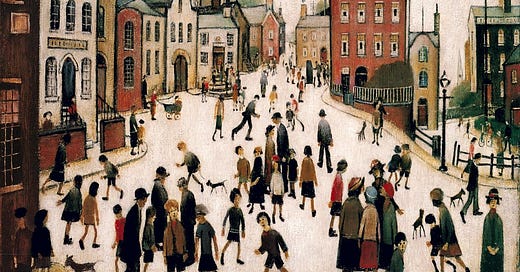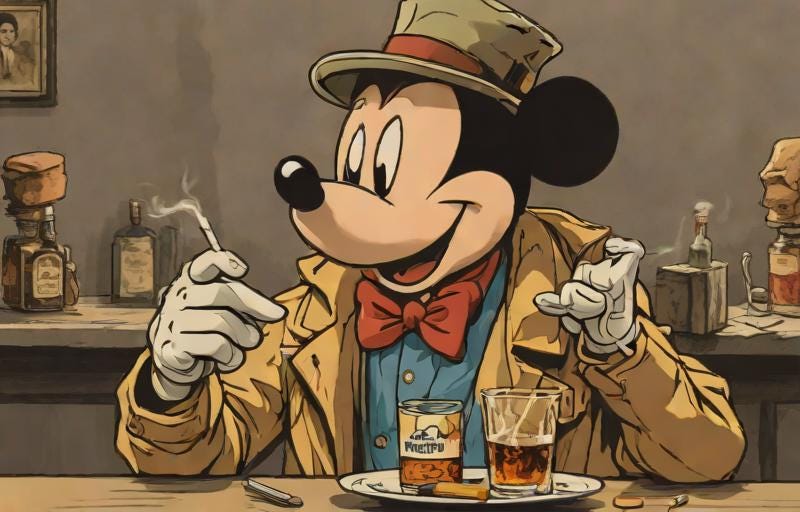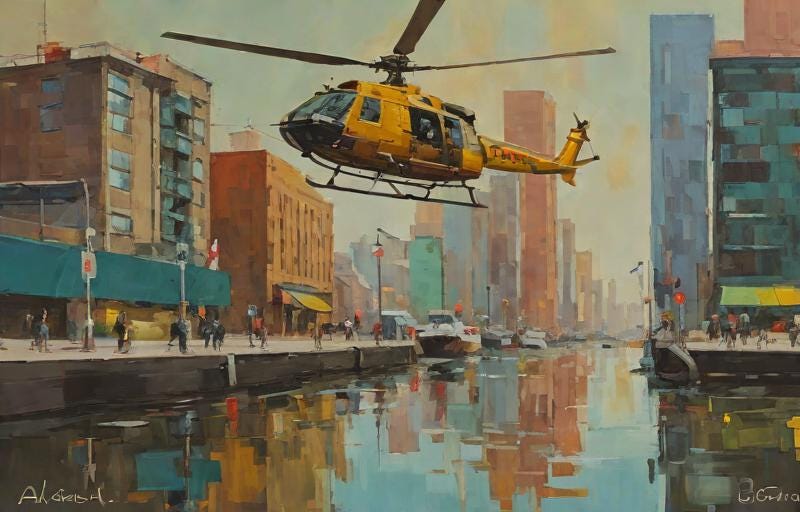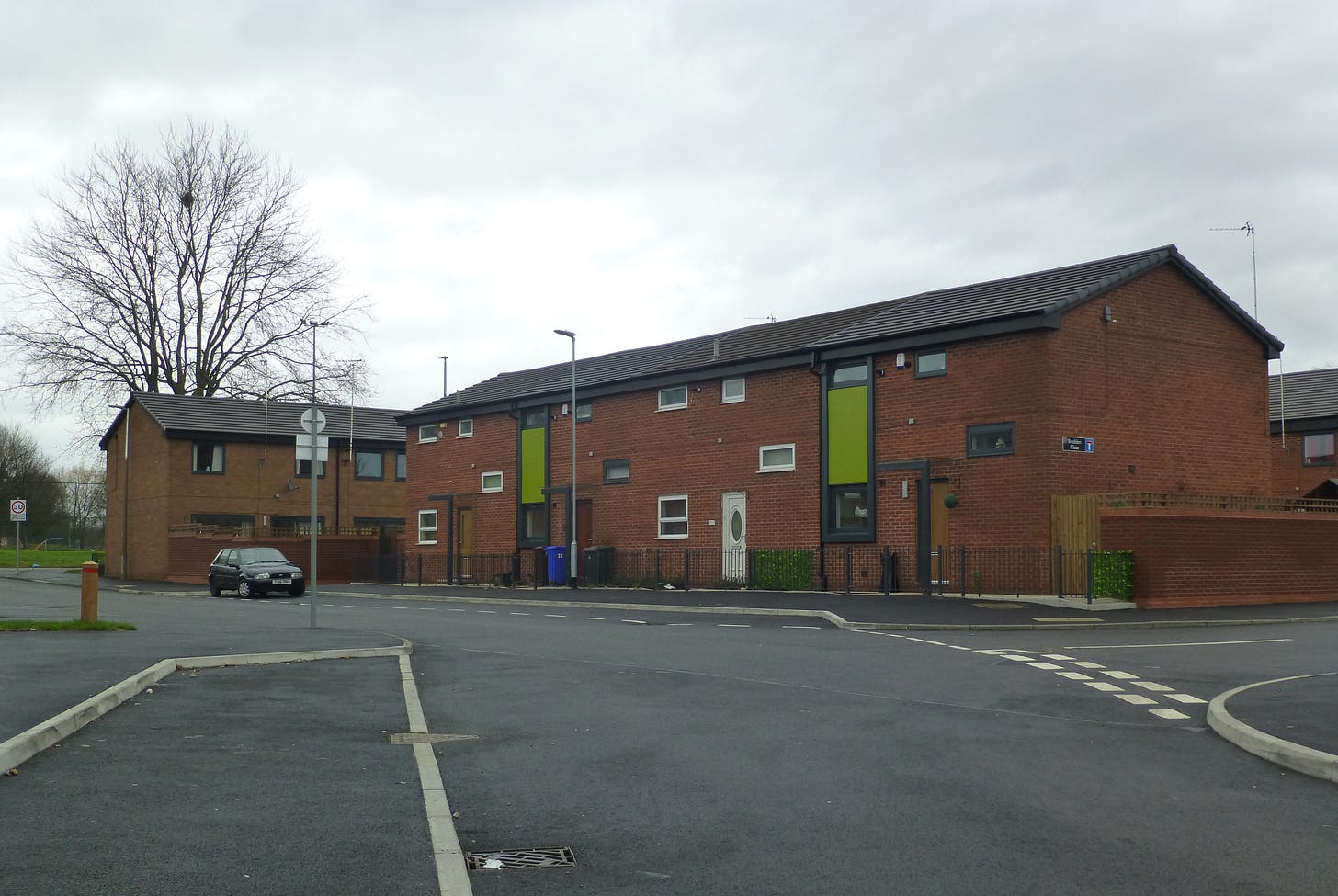Merry Christmas.
Today would have been Shane MacGowan’s 66th birthday had he not passed away on 30th November this year. There will be plenty of people today listening to his best known hit, Fairytale of New York, which he recorded in the summer of 1987 along with Kirsty MacColl. It was released as a single in time for Christmas that year (though The Pet Shop Boys kept it from Number One) and featured on the Pogue’s album If I Should Fall From Grace with God, the following year.
As Neil McCormick of The Telegraph pointed out, the song is a tale of “drunkenness and woe, violence, swearing, insults, sadness and disappointment”. That might sound like an unlikely Christmas hit but, as someone who spent sixteen Christmases working for the police, I can tell you that those attributes sum up Christmas for so many.
The song says that the boys of the NYPD Choir are singing Galway Bay but there is, in fact, no NYPD Choir. For the video they recruited the NYPD Pipe Band, as that was the closest thing in reality to MacGowan’s lyrics. The only song they all knew was the theme to The Mickey Mouse Club. So, that's what they're singing in the video.
Besides his well known Christmas hit, MacGowan wrote some other marvellous songs: The Old Main Drag, Sally MacLennane, A Pair of Brown Eyes, A Rainy Night in Soho, The Dark Streets of London, and many other terrific short stories of love and loss and madness and drink.
Two of my favourite Pogues songs weren't actually written by MacGowan, though. The first is The Irish Rover, a nineteenth century folk song about an impossible ship, recorded with The Dubliners in 1987. The other came from The Pogues 1985 album Rum Sodomy & The Lash and is called Dirty Old Town. It had been written back in 1949 by Kirsty’s dad, Ewan MacColl, about his place of birth: Salford. My story began in Salford too. I was born there on a rainy Northern Tuesday in 1969.
Going back to the places where you have lived after a long absence can allow you to appreciate all of the things that you took for granted; all of the beauty on your doorstep which you missed before. Unless, that is, you lived in Salford.
The streets where I’d grown up were fairly grim places even in the rosy-hued memories of my childhood but people generally cared for where they lived. Now, the scrubbed front steps and neat net curtains had been replaced by litter and boarded up windows. However, there was, at almost every house, a defiant, straggly hanging basket proclaiming the last dregs of pride.
The Salford I remember as a boy when I walked through its streets hand-in-hand with my dad and watched the huge ships seemingly sailing along at the end of the road on the Manchester Ship Canal, had changed. Now the old docks where the ships used to sound their foghorns at midnight on New Years’ Eve had become Salford Quays and it was not a Salford my dad would have recognised.
In fact, it wasn’t a Salford that I recognised. Everything seemed to be glass and shiny copper-coloured buildings. Coffee bars, wine bars and TV studios. The police helicopter overhead and sounds of alarms made me reticent about venturing off the shiny quays and into the city of my birth. Great Southern Jessie I’ve become.
The name Lowry appears all over Salford and particularly on Salford Quays. The largest collection of his paintings and drawings anywhere in the world can be found here. I didn’t visit, I knew better. When I was a boy, my dad used to take me to the library and the museum on The Crescent in Salford. Huge, deep-red, brick-built, Victorian buildings with stone entrance porticos.
Inside the library were dark shelves and silence and the books I adored; I was very proud of my library card. The museum next door housed a re-creation of a Victorian street which fascinated me on every visit. It was like going back in time; an idea which enthralled me then and captivates me still.
The upper floor of the museum housed mainly Lowry paintings and, as six-year-olds tend to be quite honest, I came to the conclusion that Lowry couldn’t draw very well. Of course, I’ve since learned that he could draw well but I’ve yet to discover why he didn’t bother. A couple of his paintings, the Football Match and Piccadilly Circus, have sold for more than five million quid each. They both look like What I Did in my Holidays by Laurence Lowry aged 7 3/4. Honestly, they’re rubbish. I really cannot understand why his paintings are worth anything at all, the ones that don’t look like they were done by children look as though they were done as some sort of therapy.
I found myself in Salford on 5th February, my father’s birthday, so I went to the place which, as far as I know, was where he was born. Kirk Braddon Street, Salford. The street isn’t there anymore, it was bombed by the Germans in the Second World War and then knocked down and replaced by what is now called Bradden Close. The house where my father was born was one of eight thousand homes damaged or destroyed in the Christmas Blitz of 1940. Nearly 200 people died and another 800 were injured in Salford alone over the two nights of air raids.
The scars of the bombing were still present when I grew up here in the 1970s. We played on an area of rough open ground called, as these areas were, “the croft”. These crofts were generally bomb sites.
My grandfather, George Thomas Bleese, son of Joseph Bleese Junior, and my grandmother Mabel Cecil Bleese (nee Pickering) had lived in Kirk Braddon Street twice. First of all during the First World War at number 27 and, since the early 1920s, at number 13. The four youngest children: Alma, Cyril, Doreen and Norman, were still living at home at the time of the bombing but all six of them escaped with their lives. Unfortunately, Cyril would die the following year at the age of just thirteen.
For some reason, when they rebuilt the old streets they decided to mis-spell their names, so Kirk Braddon Street became Bradden Close. Interested as I am by why things are named the way they are, I found out that Kirk Braddon is in the parish of Braddan – so the spelling never was that certain - on the Isle of Man.
Until what would have been the day of my father’s 94th birthday, I’d never knowingly visited the place of his birth. When I was a boy, I was either never told or never listened when someone mentioned that these were the streets my father had known when he was just a boy like me. When I started secondary school, I used to go swimming at a leisure centre just opposite here and buy my lunch from the chip shop only a few hundred yards away. I never realised that my father had walked the same streets.
It’s odd how little attention we pay to things which will one day seem so important to us. We don’t get round to asking the questions until it’s too late. We don’t realise how much sharing our thoughts and experiences make them more real until we’ve got no-one to share them with. My dad died when I was seven, so I have a very long list of questions and I’ve long since lost count of the number of things I wished I could share with him.
Even though I now knew about my connection to these few streets, I didn’t feel anything; everything my father had known was long gone. In fact, many of the streets I’d known seemed to have been rebuilt since I left here as a twelve-year-old boy and moved out to the coast. Now it was brick-built boxes with very small, grey-framed windows which must have looked great on an architect’s drawing but can’t be much fun to live in. To be honest, Salford didn’t look like my idea of a fun place to live but that’s probably because I’d been lucky enough to spend the last quarter of a century living in places that looked rather more like the make-believe Britain of my childhood imaginings.
One of my all-time favourite travel books is J.B. Priestley’s English Journey, written in the early 1930s. It evokes a very different England to the one I know but it is one that’s somehow still recognisable to me and one I seem able to yearn for despite never having known it. J.B. Priestley didn’t visit Salford but he did describe the journey from Manchester to Bolton, which would involve passing through Salford. He said that the ugliness was so complete that it was almost exhilarating. Now, that really is something I recognise, apart from the exhilarating bit.
And now, with huge apologies to Shane MacGowan who’s spinning in his Tipperary grave right now, here’s the Fairytale of Salford:
It's Christmas Eve, Ade
In the Bleese house
My old man said to me, you'd better get to sleep
And so I closed my eyes
And when I woke at two
My pillow case was full
Well, what else could I do?
I shouted out "He's been"
With joy at what I'd seen
I got a feeling
I'd got an Action Man
So happy Christmas
I got a toy fort too
And a fire engine
So all my dreams came true
The Salford Boys Club Choir
Were singing Matchstalk Men
And given half a chance I'd go
And do it all again
Subscribe now to find out next Sunday why I’m on the edge and who’s with me.
Thanks for reading Bunking Off with Adrian Bleese. Subscribe for free to receive new posts and support my work or read more right now here Above the Law












